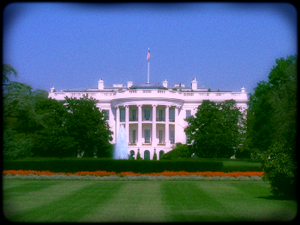You know those eyeglasses you can buy — called Transitions lenses, I think — that are crystal clear as long as you're in a fairly shady place, but get progressively darker with increasing light until they're sunglasses in bright daylight? That's what I think of when I consider the Obama administration's track record on transparency, contrary to what is promised on the White House website:

My Administration is committed to creating an unprecedented level of openness in Government. We will work together to ensure the public trust and establish a system of transparency, public participation, and collaboration. Openness will strengthen our democracy and promote efficiency and effectiveness in Government.
The most recent evidence of the actual, versus promised, attitude toward openness was on show during the recent confirmation hearings on the nomination of John Brennan to run the Central Intelligence Agency, when the White House delivered to the Senate the bare minimum it thought it could get away with on the policy of using drones to kill American citizens such as Anwar al Awlaki. I have commented before on the bizarre outlook of an administration that finds it morally acceptable to kill citizens, but repugnant to strip them of their citizenship when they have committed treasonous acts or, just as importantly, taking the steps necessary to ensure that people like al Awlaki (a "dual national" Yemeni born of nonimmigrant student parents in the United States, quite by happenstance) shouldn't considered U.S. citizens to begin with.
Other proof of the administration's double-talk, and double standards, on openness and transparency is outlined by journalist Susan Crabtree in an article that appeared in The Washington Times on November 4, 2012, discussing, for instance, the White House failure to "live up to promises and expectations … on championing efforts to strengthen lobbying disclosure rules and overhauling the nation's campaign finance system."
The article also outlines the concerns of groups as varied as the American Civil Liberties Union and the Cato Institute over the administration's abysmal record on fully complying with the Freedom of Information Act (FOIA) in responding to requests for information from those, and many other institutions and individuals. The Cato Institute went so far as to assign a failing grade to 19 out of 20 Cabinet-level agencies in their FOIA compliance. A prime offender, according to the article, is the Department of Homeland Security (DHS) and its component agencies.
DHS's cavalier or unresponsive attitude toward requests for information filed under FOIA is also laid out in a February 5 article in The Weekly Standard.
According to the Standard, which used DHS's own annual FOIA report to assemble its data, the department and its agencies — with a FOIA staff of over 400 — fully approved only 10 percent of the FOIA requests filed and, in an unprecedented departure from past administrations of both parties, charged the FOIA requestors in excess of $38 million in fees for providing the information.
Staff and writers at the Center for Immigration Studies have received the same kind of abysmal treatment described in these articles. (See, for instance, an October 2011 blog by Janice Kephart, "'The Toughest Transparency Rules in the History of Government'? Saga of a FOIA Request"; see also her testimony before the House of Representatives, "Enhancing DHS Efforts to Disrupt Alien Smuggling Across Our Border".)
One might reasonably conclude that the treatment has been reserved for organizations such as CIS that the administration has concluded are not philosophically aligned with its policies, including immigration. Not so. Even its philosophical soul mates in the struggle for open borders and broad-based amnesty have been kept at bay. When a variety of organizations sought information from DHS's Immigration and Customs Enforcement agency regarding its Secure Communities program, they were stiff-armed. The result? A lawsuit filed in the Southern District of New York by a coalition of those organizations seeking access to the information they had been denied.
The lawsuit lasted well over two years and cost the government hundreds of thousands of dollars and, in the end, it lost pretty much every major battle in its effort to withhold documents from the coalition — including, most particularly and especially, its assertion that the memorandum it used to justify shifting Secure Communities from "voluntary" to "mandatory" participation by states and localities was exempted from FOIA disclosure.
Had ICE taken the more responsible point of view and provided these documents, the public would have been better served, and taxpayers would have been saved a considerable amount of money. ICE itself could have devoted its efforts to better implementing Secure Communities, instead of tying up inordinate human and fiscal resources trying to mask its ineptitude from public view. A contemporaneous article describing the debacle can be found at the online Courthouse News Service.
Presiding Judge Shira Scheindlin began her opinion directing the government to provide its memorandum by quoting Supreme Court Justice Louis Brandeis — "Sunlight is said to be the best of disinfectants; electric light the most efficient policeman" — and chastised the government for the inordinate number of judicial opinions she had been obliged to issue requiring them to provide documents.
Quite an irony for a president who came into office promising so much transparency. As I said, more like Transitions lenses — opaque when subjected to the light of day.
